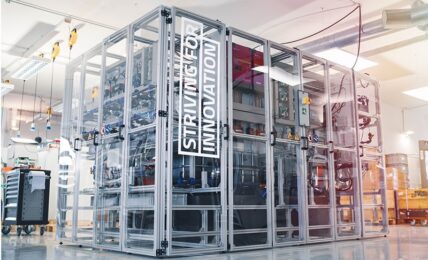President Biden unveiled a series of actions aimed at achieving his administration’s goal to develop an EV charging network across U.S. highways and support a domestic EV charging industry, alongside commitments from companies including Tesla, GM, Hertz and bp to build out and open up their own charging networks.
The advancement of clean mobility has been a key focus area for the Biden administration, with an executive order signed in 2021 mandating that zero emissions vehicles make up half of new vehicle sales in the U.S. by 2030. The administration’s Bipartisan Infrastructure Law (BIL) allocates $7.5 billion for the development of a network of electric vehicle chargers, targeting 500,000 EV chargers nationwide by 2030, including $5 billion over five years for the development of an EV charging network across the interstate highway system announced last year under the BIL’s National Electric Vehicle Infrastructure (NEVI). The BIL also invests $10 billion in clean transportation, and over $7 billion in EV battery components, critical minerals, and materials.
One of the key actions highlighted in the White House announcement is the development of standards for installation, operation and maintenance of federally funded chargers, aimed at ensuring that the national EV charging network “is user-friendly, reliable, and accessible so that charging is as easy as filling up at a gas station.” The new standards require that chargers use consistent plug types, power levels, and that there are a minimum number of chargers capable of supporting fast charging, ensure 97% uptime, are easy to find through mapping applications, and support a single method of identification for drivers to avoid the need for multiple apps and accounts.
The administration also announced strict guidelines for chargers receiving federal funds to be built domestically, with BIL-funded EV chargers required to have final assembly and all manufacturing processes for any iron or steel charger enclosures or housing occurring in the U.S., effective immediately, and at least 55% of the cost of all components required to be manufactured domestically by July 2024.
The White House statement included a series of announcements from private companies, which it said will add more than 100,000 public chargers available for all EVs. These include an announcement from Tesla to make at least 7,500 of its chargers available to non-Tesla EVs by the end of 2024, including at least 3,500 Superchargers, plans by bp to invest $1 billion by 2030 into EV charge points across the U.S. and to build out fast charging infrastructure with Hertz at the company’s locations in several major cities, and from Pilot Company, General Motors, and EVgo to make the first 200 chargers from their recently announced coast-to-coast fast charger network available this year.
In its statement, the White House said:
“Today’s announcements are evidence of the President’s successful industrial strategy, ensuring that federal funds are attracting private investment to ensure the clean energy transition is powered by American manufacturing and good-paying union jobs. Combined with investments in battery manufacturing and tax credits for electric vehicle purchases and charging infrastructure driven by the Inflation Reduction Act, these programs are key to achieving the Administration’s climate goals.”
The post Biden Unveils Plans for U.S. EV Charging Network, Commitments from Tesla, GM, Hertz & bp appeared first on ESG Today.


